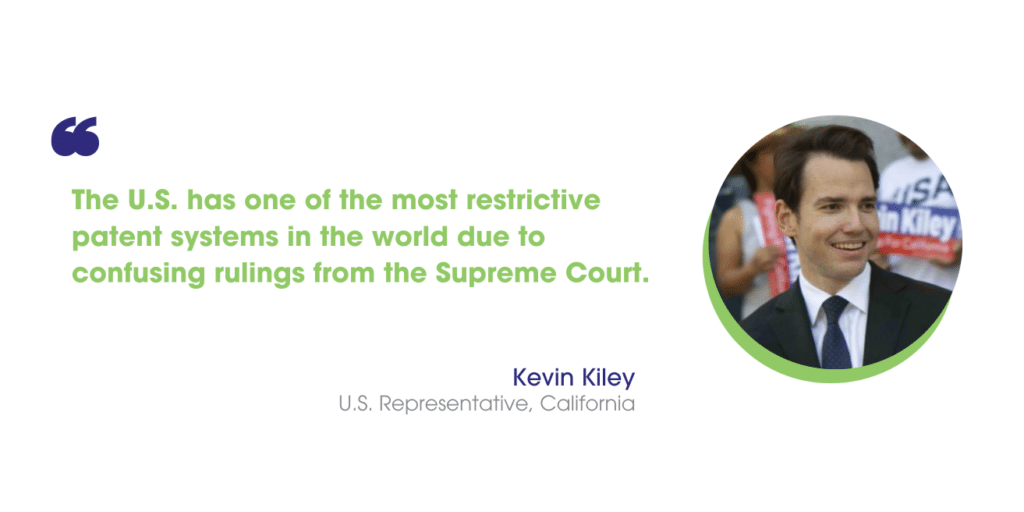A bipartisan bill that aims to expand patent eligibility has been introduced in the U.S. House of Representatives.
The Patent Eligibility Restoration Act (PERA) would allow “any invention or discovery that can be claimed as a useful process, machine, manufacture or composition of matter, or any useful improvement” to be eligible for patent protection, aside from a few exceptions.
The bill would reverse a decade of legal precedent stemming from the U.S. Supreme Court’s ruling in Alice v. CLS Bank, in which the Court provided a two-step process for determining patent eligibility:
- A court must first consider whether the patent claims are directed to a patent ineligible concept such as an abstract idea;
- and if so, the court should consider whether the claim’s other elements transform the claim into a patent eligible concept.
As a result, fewer inventions, especially in the software and technology space, have been deemed patent-eligible subject matter.
“The U.S. has one of the most restrictive patent systems in the world due to confusing rulings from the Supreme Court,” says Rep. Kevin Kiley (R) of California, who, along with Rep. Scott Peters (D) of California, introduced the bill.

“The Patent Eligibility Restoration Act will allow American inventors to patent a wider variety of inventions that foreign nations, like China, already allow their own innovators to patent. This will spark economic growth, create jobs and provide significant technological advancement for all Americans.”
A similar bill, sharing the same name, was introduced in the U.S. Senate in the summer of 2023.
- The proposed legislation stalled after Amazon, Google, Meta, Walmart and many other companies formed a coalition to oppose the bill.
“PERA would turn the U.S. patent system upside down, severing patent rights from their historic mooring to improvements in technology. PERA would lead to a wave of crippling litigation against American manufacturers, innovative technology companies and main street businesses,” the coalition wrote in a letter to the Senate Judiciary Committee in March.
Impact On Promo
Protecting intellectual property (IP) is a major concern for the promotional products industry, which is fueled by creativity and innovation.
- Trademarks, copyrights and patents are designed to distinguish one’s products or services from another’s.
- Those protections enable customers to know what they can expect, ultimately building brand loyalty.
Although the need to protect IP isn’t called into play until someone infringes on it, suppliers, distributors, decorators and business service providers should keep an eye on the market to remain vigilant. For example, suppliers are urged to file a patent application before public disclosure.
RELATED: New Ruling Could Make Design Patents Harder To Obtain
“If you wait to file, you may waive your rights or limit the remedies,” said Justin Miller, Esq., a patent attorney with Larson & Larson, at the 2019 PPAI Product Responsibility Summit.
- In a landmark legal victory for the promo industry in 2018, a federal court jury ruled in favor of ETS Express after the supplier was sued for alleged trademark infringement by Can’t Live Without It, LLC, dba S’well Bottle.


